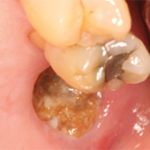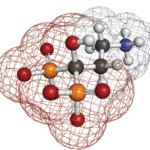Healthcare providers prescribe many different drugs to treat osteoporosis, including bisphosphonates.
Kidney Disease & Fracture Risk
Susan Ott, MD, professor of medicine and metabolism at the University of Wisconsin School of Medicine in Madison, discussed bone health in patients with chronic kidney disease (CKD) who have high fracture risk that presents throughout all stages of disease.
These patients have increased bone turnover due to multiple factors associated with CKD, Dr. Ott explained. Patients with renal failure have difficulty excreting phosphate, a situation that affects bone metabolism because calcium and phosphate are in a complex feedback loop with parathyroid hormone (PTH) and vitamin D.
Patients with CKD also have low levels of bone morphogenic protein 7 (BMP-7), which is necessary for differentiation of pre-osteoblasts to mature osteoblasts. This loss of BMP-7 causes the histologic finding known as fibrosis. In addition, patients may be malnourished, which can contribute to decreased bone formation.
Patients with CKD may also experience the accumulation of iron, aluminum and strontium in the bone, which can contribute to osteomalacia and oxalate in the bone, which can cause crystal deposition. Moreover, dialysis does not clear beta-2 microglobulin, so patients on long-term dialysis can form amyloid that can subsequently create cysts and cause carpal tunnel syndrome. The cysts frequently form at the end of a long bone, and, when the diagnosis is missed by a nephrologist, the patient is frequently referred to a rheumatologist.
Dr. Ott explained that for patients with slightly low PTH, the best option may be treatment with raloxifene or possibly anti-sclerostin, when available. She also noted that most nephrologists treat patients with mild to moderate kidney disease with denosumab. Unfortunately, the safety of bisphosphonates in patients with decreased kidney function is unknown, and the effectiveness of teriperatide in patients with high PTH due to kidney disease is unknown.
“We have a really complex set of symptoms,” Dr. Ott concluded. “It will be hard to find treatments when there are so many things going wrong. You just take them one at a time, and do what you can.”
Lara C. Pullen, PhD, is a medical writer based in the Chicago area.


